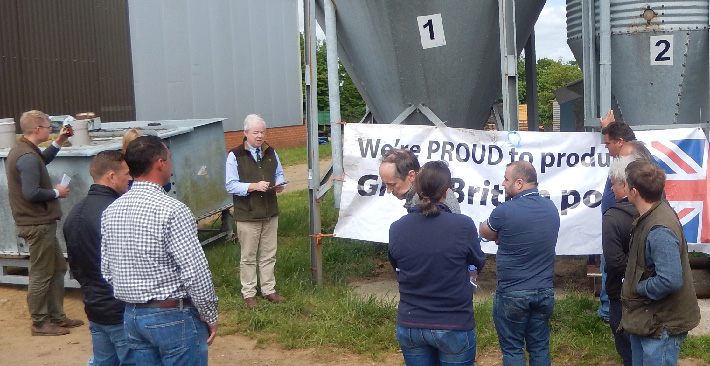It’s a pity that pig prices are not as hot as the weather and although the SPP managed to stand on at 150.47p, German prices continue to retreat with the latest influential producer price down by 3 euro cents to €1.41 which is equivalent to 126p in our money and the only positive note was an improvement in the value of the Euro which traded today at a 10-month high worth 89.35p.
As expected the spot market has remained quiet with legs and loins still fairly hard to clear, but sausage meat remains a sizzling trade and spot bacon prices tended to be in the 145-150p region according to spec.
Weekly contribution prices have in the main stood on between 138-146p but still no signs of any improvement in demand for pig numbers.
As far as cull sow values are concerned, had it not been for the improvement in the value of the Euro these would have slipped further and in most cases cull sow export quotes were trimmed back by around 1p in the 63-66p range.
Still no real appetite for weaners with more sellers than buyers due to a lack of space and pre-occupation with straw carting and feed prices are still under pressure, with the latest AHDB 30kg weaner average quoted at £54.25 and the 7kg average at £39.33.
With feed costs in a bullish phase, finishers are thinking long and hard before making buying decisions. Feed prices are also causing significant concern due to the extremely dry weather conditions across the UK and in parts of northern Europe as well as currency movements and the latest UK spot ex farm feed wheat average rising to £163.90.
UK protein prices are also edging ahead with 48% Brazilian soya meal traded ex Liverpool at £341/t and 34% rape meal ex Erith at £215/t.
November London grain futures prices are also continuing to harden with November 2018 feed wheat quoted at £171.50/t with more bulls than bears operating in this sector.
And finally, there seem to be more questions than answers as far as the future of the UK pig industry is concerned and reports that the first quarter of 2018 saw the highest ever recorded diagnostic rate of PRRS may well be flagging up a shortage of pigs in the system as the winter approaches, not to mention the confusion over Brexit, falling global meat prices and rising feed costs.
However, one positive note has been the report from a Defra commissioned review that has recommended radical changes on the way in which farms are inspected after we leave the EU and if this leads to a reduction in bureaucracy and the use of a single farm rating system rather than a whole host of assurance and other schemes in place, so much the better…we shall see.




